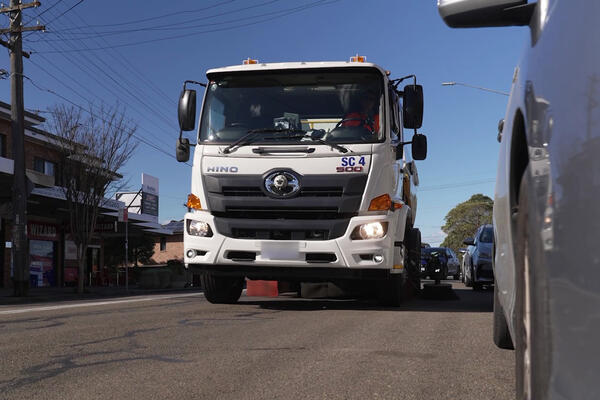
Transport technology case study: Asset AI
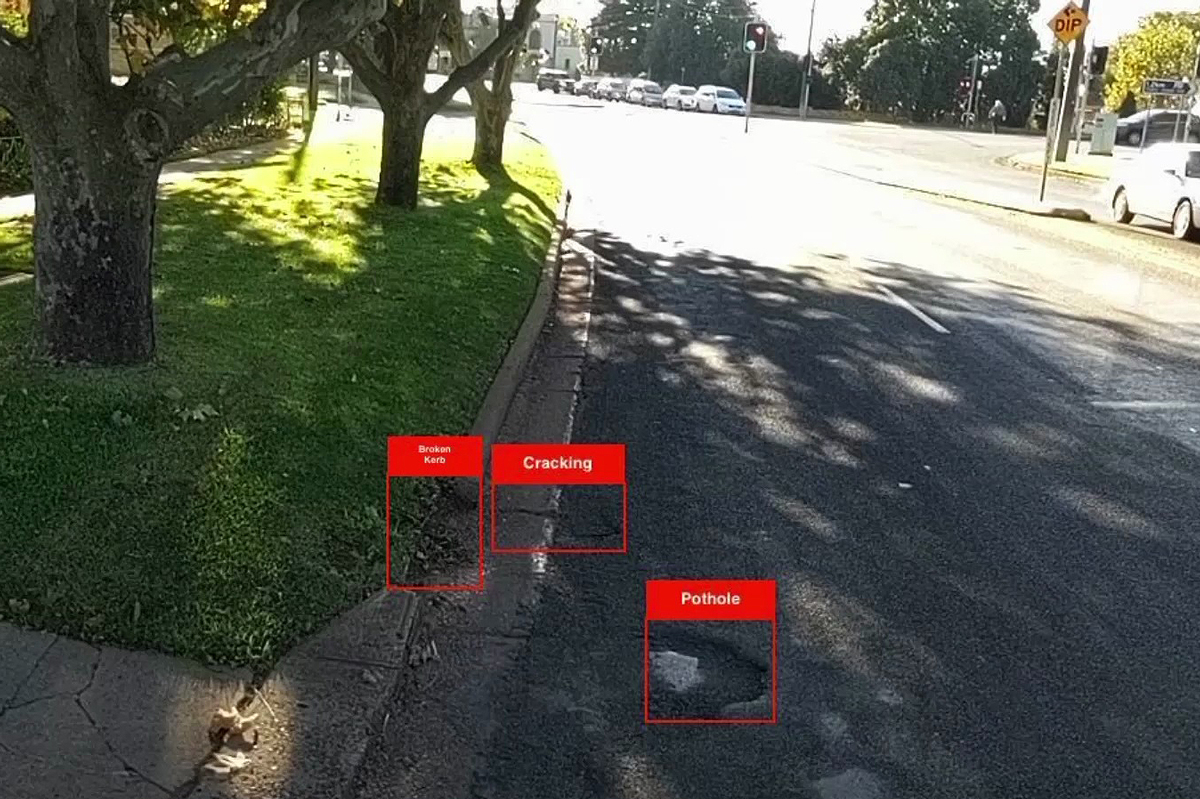
Asset AI® - Suburban Road Defect Detection
Asset AI®
Introduction
AI technology allows councils to conduct frequent and cost-effective road audits, enabling timely and early intervention to address defects and extend the lifespan of roads.
Challenge
Traditional road audits are infrequent, time-consuming, and expensive. Because traditional methods are reliant on crews inspecting the condition of the asphalt and bitumen in person or utilising specialised and expensive equipment, the capacity to conduct regular audits is limited by resourcing considerations. Councils are often only able to conduct inspections every three to five years. By then, faults have progressed, and the council must focus on expensive reactive repairs. A more frequent, pro-active approach would identify road asset problems before they develop, resulting in lower risk to the community, better quality roads and efficiencies for the council.
Solution
A pilot project of cameras and sensors fitted to public transport and council vehicles has demonstrated capability to deliver a snapshot of road conditions every fortnight. As the vehicle travels along the road, it captures video footage of road condition and sensor data which is fed into a system. Machine Learning is applied to identify and classify any critical safety issues such as damaged signage, faded line markings, potholes, and rutting. These issues are then escalated based on their severity and risk profile to council maintenance planners.
The Asset AI® software platform will evolve over time. The platform will learn to recognise the triggers for road defects, as well as drawing on weather data, to predict issues like potholes or cracks based on a variety of environmental and utilisation factors. Asset AI® has the potential to indicate when preventative maintenance work could then be scheduled before there is a risk to road users and the community.
Expected outcomes
The first phase of this trial saw twelve cameras fitted on council vehicles in Griffith (regional) and Canterbury-Bankstown (metro). The Asset AI® platform is scheduled for go-live in early 2024. Several other councils, ranging from Georges River, Blayney, Central Coast, Liverpool, Wingecarribee, Warren Shire, Liverpool Plains, Tamworth, Wollongong, Murray River, and Shoalhaven, have expressed interest in joining the trial. It is anticipated more than ten councils will participate in 2024.
Asset AI® received a $2.9 million funding co-contribution through the NSW Government’s Smart Places Acceleration Program, a special reservation under the Digital Restart Fund. This technology was designed and built within Transport, in collaboration with IPWEA, Canterbury Bankstown Council, and Deloitte.
The Asset AI® technology has the potential to provide snapshots of road conditions every fortnight rather than a manual audit every 3-5 years.
Related information
Asset AI
Artificial intelligence revolutionising road asset maintenance and operations.
Watch the video
See how artificial intelligence technology is leading to a pro-active and data-rich approach to road asset maintenance in New South Wales.
Image
Image controls:
Transport technology case studies
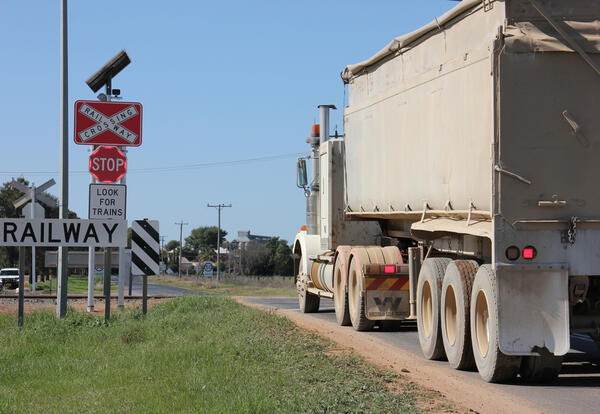
Level Crossing Technology Trial
Innovative technology aims to improve safety at railway level crossings in regional NSW.
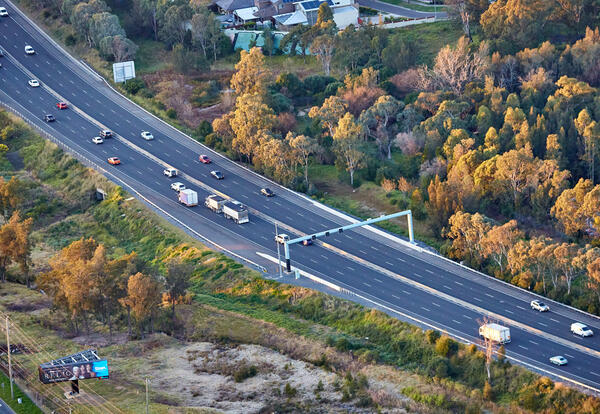
M4 Smart Motorway
New South Wales’ first smart motorway reduces crashes and shortens travel time.
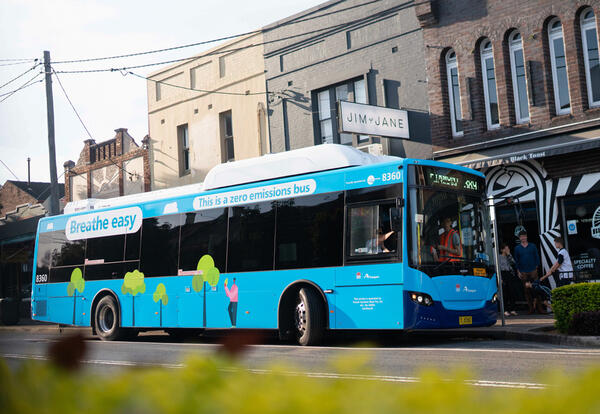
Zero Emission Buses
Our fleet of 8,000 buses will be transitioned to 100% zero emissions technology by 2047.
